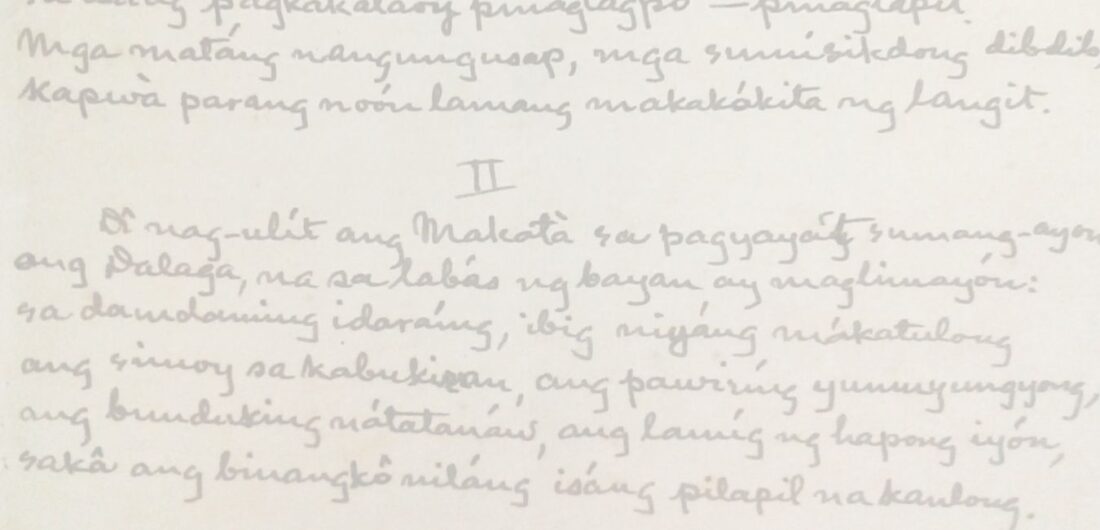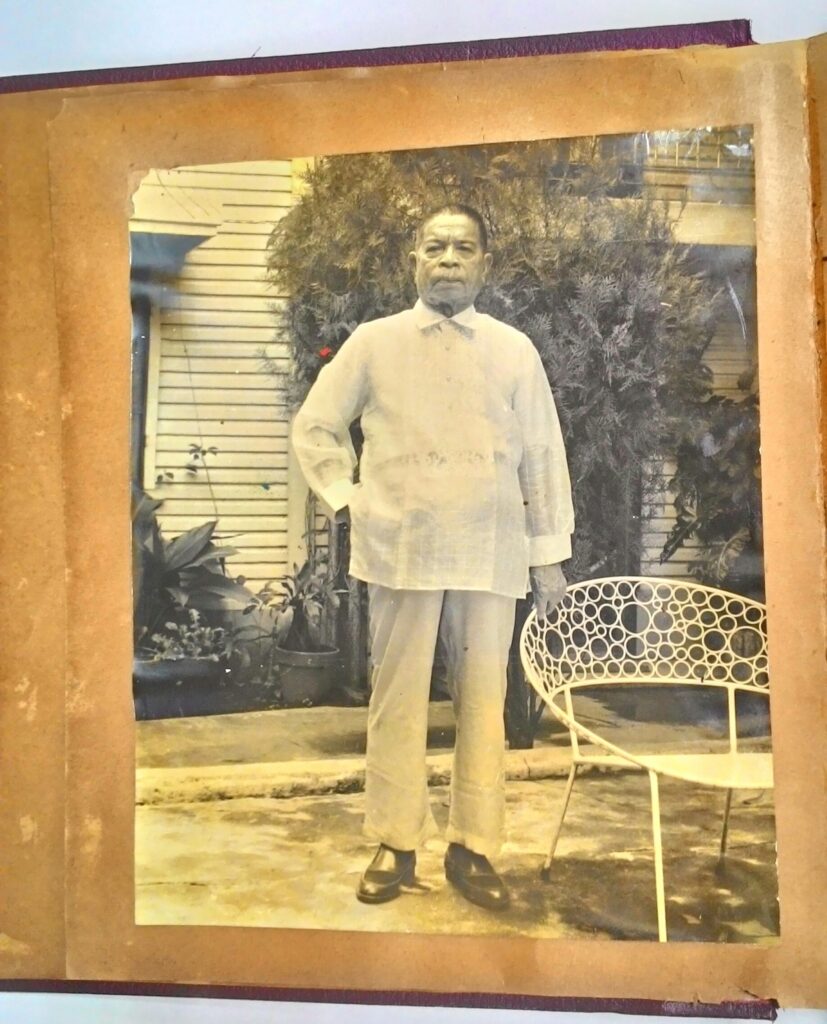BY: MARLENE PATRON
It has been said that the language reflects our country’s history. The Spanish occupation in the Philippines for over 400 years had the most impact on our language specifically, their influence on Tagalog.
Some press clippings from the so called “Scrapbook” of Lope K. Santos show the events in his life that lead to his inclination to Tagalog language.
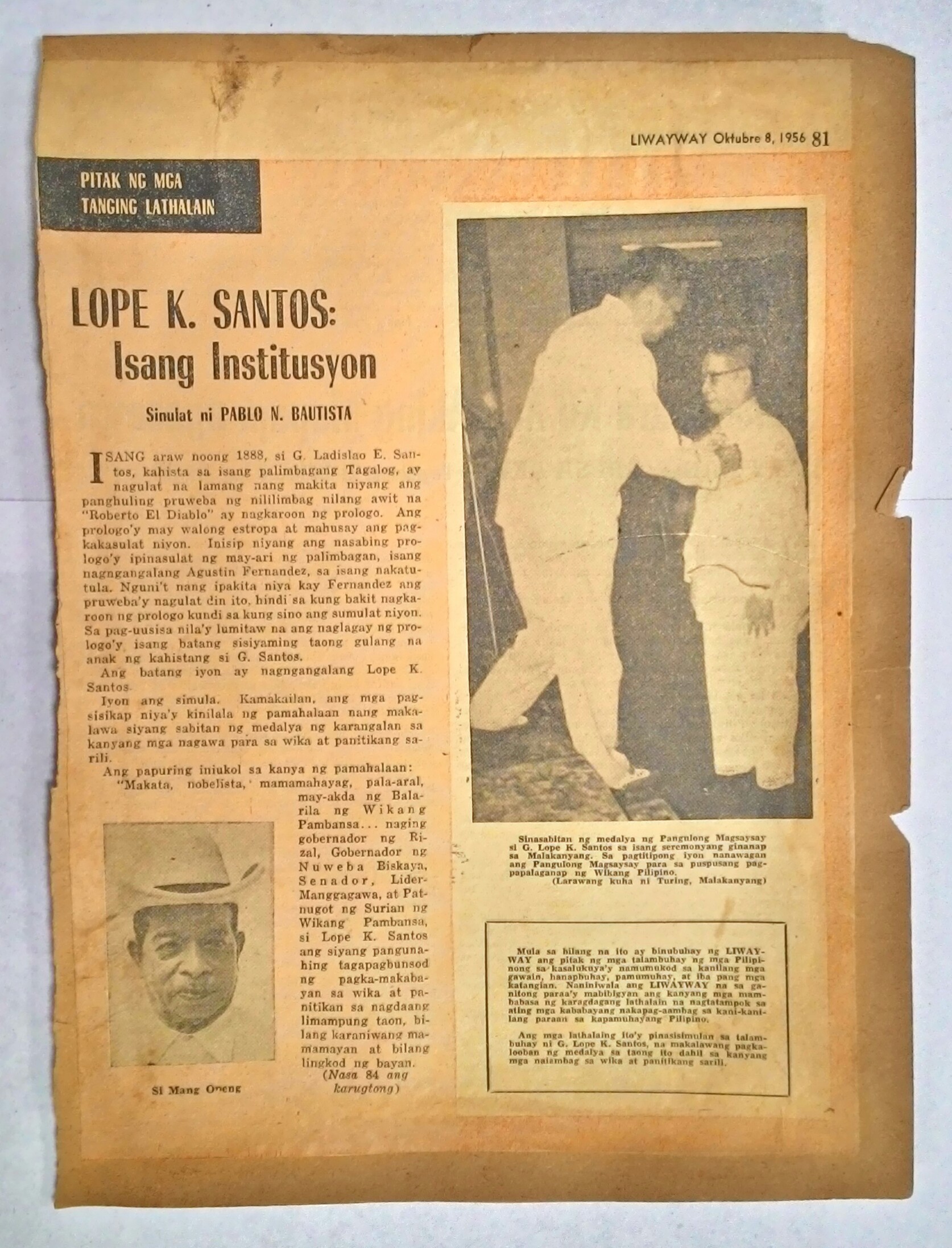
It was cited here that the young Lope wrote a prologue and it sparked his liking for language and literature.
The death of Ladislao Santos, father of the young Lope gave birth to a dedication: his one life, if need to be all his labor would be laid for his country.
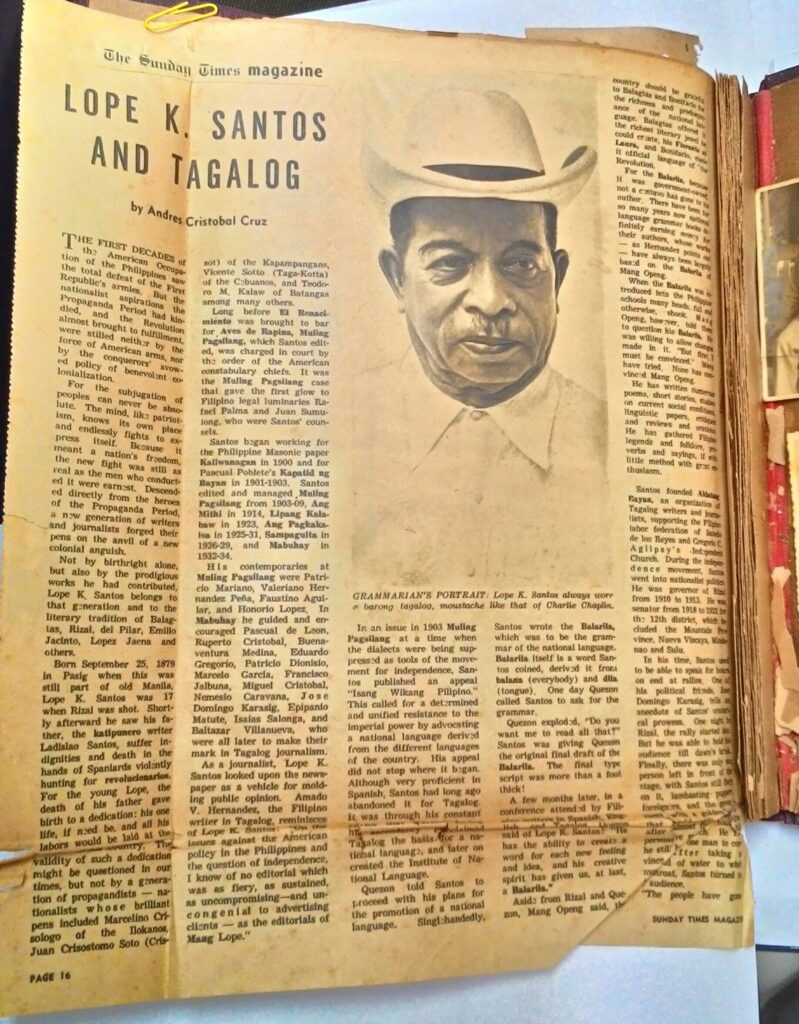
His patriotism began with his love for our native tongue, Tagalog, developing into our national language.
“Tagalog has its beauties, which do not yield to any other tongue, modern or ancient.”
Tweet
Before the Spaniards came to the Philippines, there were already over a hundred ethnolinguistic groups in our country speaking diverse but closely related to the large Austronesian family of languages.
It has spawned the problem of language as to what should be recognized as the national language. The choice between the colonial language and numerous indigenous languages puts us in a complicated situation.
The issue of our national language remain unsolved. Read on.
National Language Week
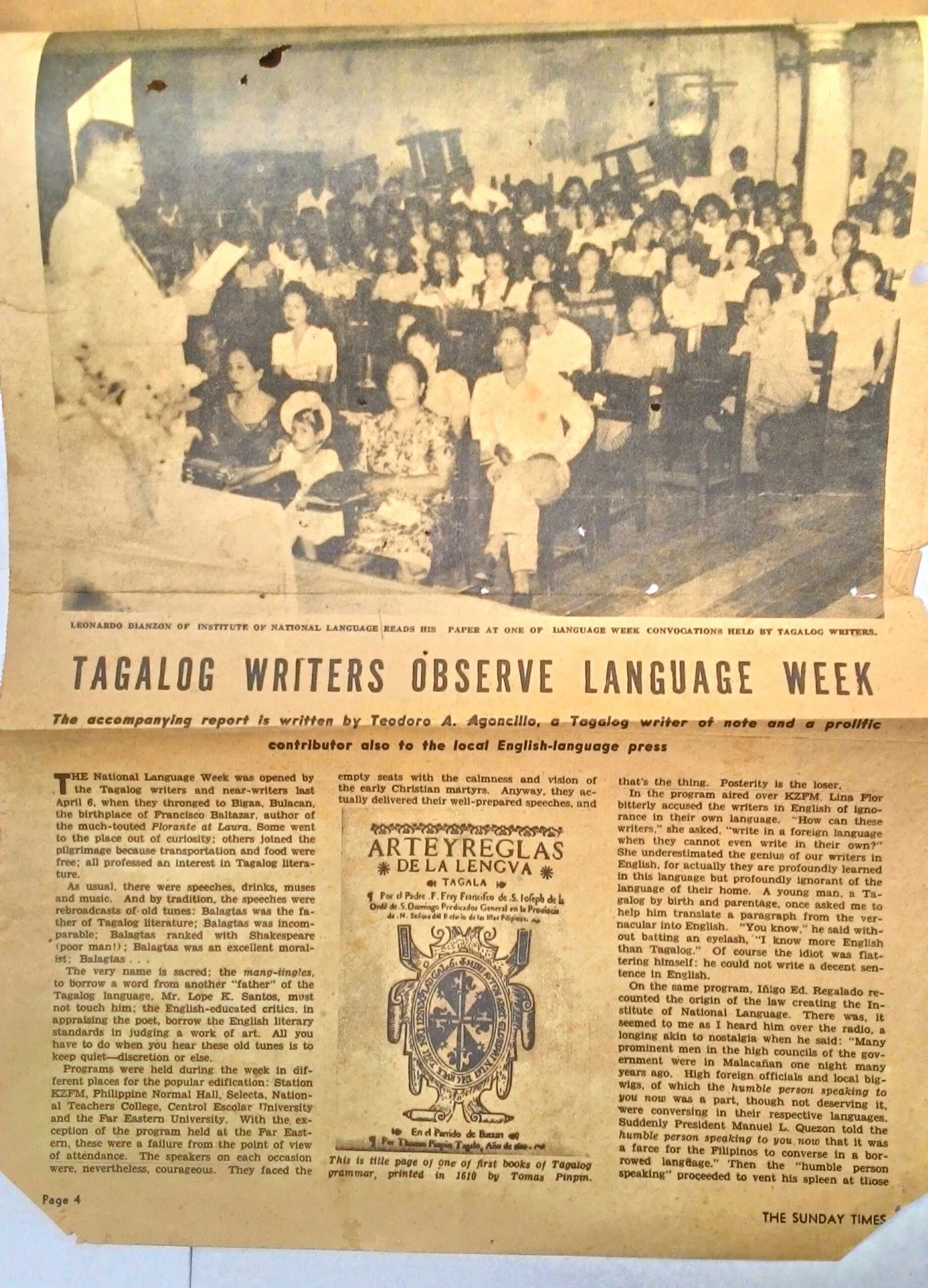
#1. Do you know when is the National Language Week being celebrated back then?
Language Legislation
Correct!
SERGIO OSMEÑA, then President of the Philippines, proclaimed NATIONAL LANGUAGE WEEK to be celebrated March 27th to April 2nd of each year.
The last day, commemorating the birth anniversary of Francisco Baltazar, the author of Florante at Laura.
Incorrect.
NATIONAL LANGUAGE WEEK is celebrated March 27th to April 2nd of each year through Proclamation No. 35 as approved by then President of the Philippines, SERGIO OSMEÑA.
The last day, commemorating the birth anniversary of Francisco Baltazar, the author of Florante at Laura.
Meet the Father of Filipino Grammar
Lope K. Santos earned the title Father of Filipino Grammar due to the prodigious works he had contributed into propagation and development of Tagalog.
One Word Thought
The establishment of Institute of National Language in June 1938 has been instrumental in making Tagalog as the mandatory medium of instruction to be used in schools but, the question of how can the National Language be most effectively developed and propagated remain unanswered.
Tweet your answer to our one word thought question:
“In one word, how can the Filipino language be effectively promoted?”
#ReflectionsOnFilipinoLanguage
Tweet
Explore more on Filipino Language

BOOKS. Locate print copies of Banaag at Sikat, Makabagong Balarila and other works of Lope K. Santos, available at the Special Collections & Archives, Mapua Library
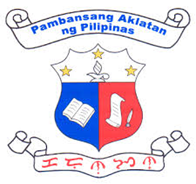
DIGITAL COLLECTION. The NLP Digital Collection features digitized materials of Lope K. Santos accessible via The National Library.

WEBSITE. The Komisyon sa Wikang Filipino is the official regulating body of the Philippine government tasked in developing, preserving and promoting the various local Philippine languages
Copyright status undetermined. For more information, contact Mapua Library Special Collections & Archives, 2nd Floor West Building, Muralla St. Intramuros Manila, Philippines 1002
This is an archived version of the original website hosted at reflectionsonfilipinolanguage.info. Some links may not be available. This version is hosted by UP SLIS with permission of the creator. Website and archive material copyright remain with Marlene Patron and Mapua Library Special Collections & Archives.
